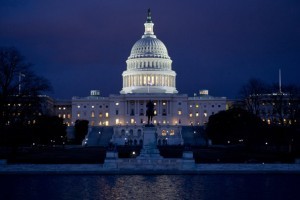At his February 16 press conference discussing the death of Justice Antonin Scalia and the newly vacant seat on the U.S. Supreme Court, President Barack Obama said, “The Constitution is pretty clear about what is supposed to happen now.” And so it is.
Article 2, Section 2 of the U.S. Constitution states the president “shall have power, by and with the advice and consent of the Senate, to … nominate, and by and with the advice and consent of the Senate, shall appoint ambassadors, other public ministers and consuls, judges of the Supreme Court, and all other officers of the United States … .”
Many pundits and legal scholars would like the American people to believe the “advice and consent” of the Senate is a mere formality, but that is simply not the case. This particular provision was intentionally included for the purpose of mitigating the power granted to the executive branch.
According to Alexander Hamilton in Federalist No. 76, the Founding Fathers considered and rejected giving the president the sole power to appoint, determining consent from the U.S. Senate is vital for ensuring there exists an appropriate balance of powers. For those who argue the Senate’s role in the confirmation process is simply to act as a rubber stamp for the executive branch is to deny the arguments plainly asserted in Federalist No. 76 and in other writings produced by the very same people who helped to craft the Constitution.
There is no disputing the Founding Fathers believed the Senate ought to play an important role in the nomination of the next Supreme Court justice, but it is not clear whether the Senate will actually accept that role. A long history of Congress willingly choosing to give up its constitutional authority does not override the power, duties and responsibilities given to the Senate by the Constitution. The United States is at a crossroads, and Congress can no longer shirk its duties.
Over the past 100 years, the nation’s courts have been loaded with judges who believe the Constitution is a “living document” that can and should be reinterpreted with each new generation. Obama himself holds this view, and it is reasonable to assume any judge he chooses would hold that understanding of the Constitution as well.
This position not only contradicts the beliefs of the Founding Fathers, it undermines the very heart of good lawmaking: If words can mean anything to anyone at any time, then what good is a law?
Even if the next justice is an originalist, the country’s highest court will simply be back to the status quo, where one “swing justice” determines the meaning of seemingly plain constitutional provisions. This is unacceptable, which brings us to a second problem that must be addressed: Congress, not the Supreme Court, is really to blame for the United States’ present circumstances.
The Founders set up three branches of government to protect the liberty and rights of the people, but the three branches are not equal in all respects. InFederalist No. 51, Madison wrote, “In republican government, the legislative authority necessarily predominates.” To modern American eyes, this claim should sound quite shocking. Over the past seven years, the president and Supreme Court have reshaped many of the nation’s longest-held beliefs, and Congress has often been far too willing to kowtow to the power of the other two branches.
Our Founders never envisioned a national legislative branch that would ignore its vital role in the federal government. Hamilton even wrote inFederalist No. 78, “… the judiciary, from the nature of its functions, will always be the least dangerous to the political rights of the Constitution.”
In order to recover the individual liberties guaranteed to the people by the Constitution – as well as to protect those rights still remaining, if only by a thread – Congress must reassert its constitutional authority by again taking control of the power of the purse and its duty to ensure the president appoints justices who will uphold the Constitution, rather than destroy it. Until that happens, our rights will continue to be determined and ruled by an unelected committee of nine individuals.
Rest in peace Justice Antonin Scalia, a truly faithful servant to the Constitution and individual liberty. Now it is up to us to ensure his legacy lives on.
Bette Grande ([email protected]) is a research fellow at The Heartland Institute and a former representative of the 41st District in the North Dakota Legislature, serving from 1996 to 2014.





